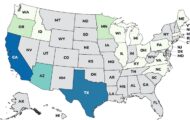Legislators in New Jersey have been trying to make the commercial sale of raw milk legal. But their efforts could be stymied by the outbreak of Campylobacter linked to Family Cow raw milk in Pennsylvania. The total number of people sickened in that outbreak is up to 71, with nine hospitalizations.
Assembly Bill 518 was passed by the New Jersey Agriculture and Natural Resources Committee just as the outbreak began in January. The bill would establish standards for raw milk, with the New Jersey Departments of Agriculture and Health setting the parameters for a permit program.
The bill would require dairies to undergo inspection, use warning labels on raw products, and sign affidavits that the cows were not given growth hormones. A similar bill died in the New Jersey Senate late last year.
More than half of the victims of raw milk bacterial outbreaks are children under the age of 20. Raw milk can carry these bacteria:
- Campylobacter, which can lead to Guillian-Barre syndrome, causing paralysis or kidney failure.
- Listeria, which can cause miscarriage or fetal death.
- Salmonella, which can cause reactive arthritis, a type of meningitis, and lead to death.
- E. coli, which can cause hemolytic uremic syndrome (HUS), that can lead to kidney failure, stroke, and blindness.
And in 2008, scientists identified a new species of cold-tolerant bacteria in raw milk called Chryseobacterium oranimense that can grow at refrigerator temperatures. That means refrigeration after processing will not keep bacterial counts low.
The FDA and CDC statistics confirm these facts. From 1998 to 2008, public outbreaks of illness from raw milk resulted in 1614 confirmed illnesses, 187 hospitalizations, and two deaths.
If you’re interested in this issue, tune in to Food Poisoning Bulletin on February 16, 2012 at 7:00 pm EST to see the live stream of the raw milk debate at Harvard Law Society.




